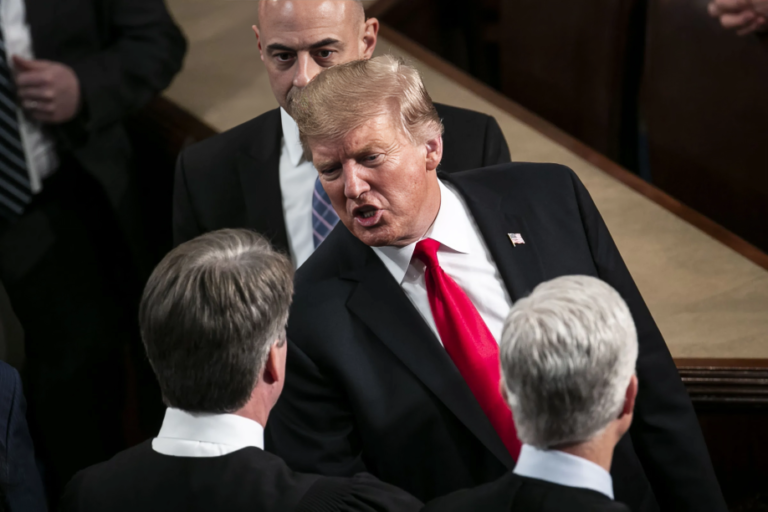On Monday, the stage is set for the swearing-in of the 47th president of the United States, heralding what many are calling the most remarkable political comeback in American history. For the Middle East, Donald Trump’s second inauguration signals the dawn of a new era of U.S. engagement, characterized by a leader known for his disruptive instincts and transactional approach.
Evidence of the incoming administration’s eagerness to assert its influence was showcased on January 15, when the outgoing president announced a long-awaited ceasefire-for-hostages deal between Israel and Hamas. While former President Joe Biden touted the breakthrough as a culmination of eight months of relentless negotiation, his triumph was overshadowed by a pointed question from the press: “Who will the history books credit for this, Mr. President? You or Trump?”
Biden’s stunned response revealed the precariousness of his legacy, as the dynamics shifted with Netanyahu’s agreement to the ceasefire, seen by many as a gesture of goodwill towards Trump, who he views as a crucial ally.
In the final hours of negotiation in Doha, Trump dispatched Steve Witkoff, his newly appointed envoy to the Middle East, to collaborate with Biden’s Brett McGurk, ensuring that the incoming administration’s influence was felt in the deal. Witkoff’s appointment caught many off guard due to his lack of diplomatic experience, yet he is recognized as a formidable dealmaker, aligning with Trump’s preference for a transactional foreign policy.
However, the specifics of Witkoff’s potential offerings to Netanyahu remain uncertain. “The ceasefire in Gaza is something Trump has claimed credit for, but we shouldn’t assume his arrival is good news,” cautioned Kelly Petillo, MENA program manager for the European Council on Foreign Relations. The ceasefire does not guarantee the release of all hostages, and Trump has ominously declared he would “unleash hell” if not all are freed.
Ahron Bregman, a former Israeli soldier and expert at King’s College London, noted that Trump is not a figure Netanyahu can easily ignore. Even before taking office, Trump had urged Netanyahu to engage with Hamas, resulting in surprising concessions from the Israeli leader.
In the aftermath of the ceasefire announcement, Trump took to Truth Social to assert that this “epic ceasefire agreement” was a direct result of his administration’s historic victory in November, emphasizing his commitment to peace and the safety of Americans and allies.
Itamar Rabinovich, a former Israeli ambassador to the U.S., anticipates a notable shift in U.S. relations with the region, predicting increased involvement from Trump’s administration. He foresees continued efforts to resolve the conflict in Gaza and potentially ambitious initiatives to address the broader Israeli-Palestinian conflict.
Yet, Trump’s close ties to Israel, exemplified by the Abraham Accords, suggest that the Palestinian cause may be sidelined. His choice of former Arkansas governor Mike Huckabee as ambassador to Israel reflects a pro-Israel stance that many believe will tilt any resolution in favor of Israel.
With Trump’s new Secretary of State, Marco Rubio, another vocal ally of Israel, advocating for stringent measures against pro-Palestinian protests, the prospects for Palestinian sovereignty appear dim. Similarly, the nomination of Elise Stefanik as ambassador to the UN signals a lack of support for Palestinian rights in international dialogue.
As attention turns to Trump’s broader Middle East agenda, the focus will inevitably land on Iran. Trump’s unpredictability adds to the uncertainty surrounding U.S. policy, with analysts split on whether his administration will pursue aggressive sanctions or seek to withdraw from the region altogether.
The reinstatement of the Iran nuclear deal seems highly unlikely, given Trump’s previous withdrawal and intent to apply “maximum pressure” on Tehran. Yet, the potential for renewed efforts at peace in the region, particularly regarding Saudi Arabia, remains complex. Crown Prince Mohammed bin Salman has made it clear that normalization with Israel hinges on concrete steps toward Palestinian sovereignty.
In a rapidly evolving geopolitical landscape, the implications of Trump’s second term will reverberate beyond the immediate ceasefire and could redefine U.S. engagement in the Middle East for years to come. The balance of power and the prospects for peace in the region hang in the balance, as all eyes watch closely to see how the new administration will navigate these turbulent waters.











+ There are no comments
Add yours